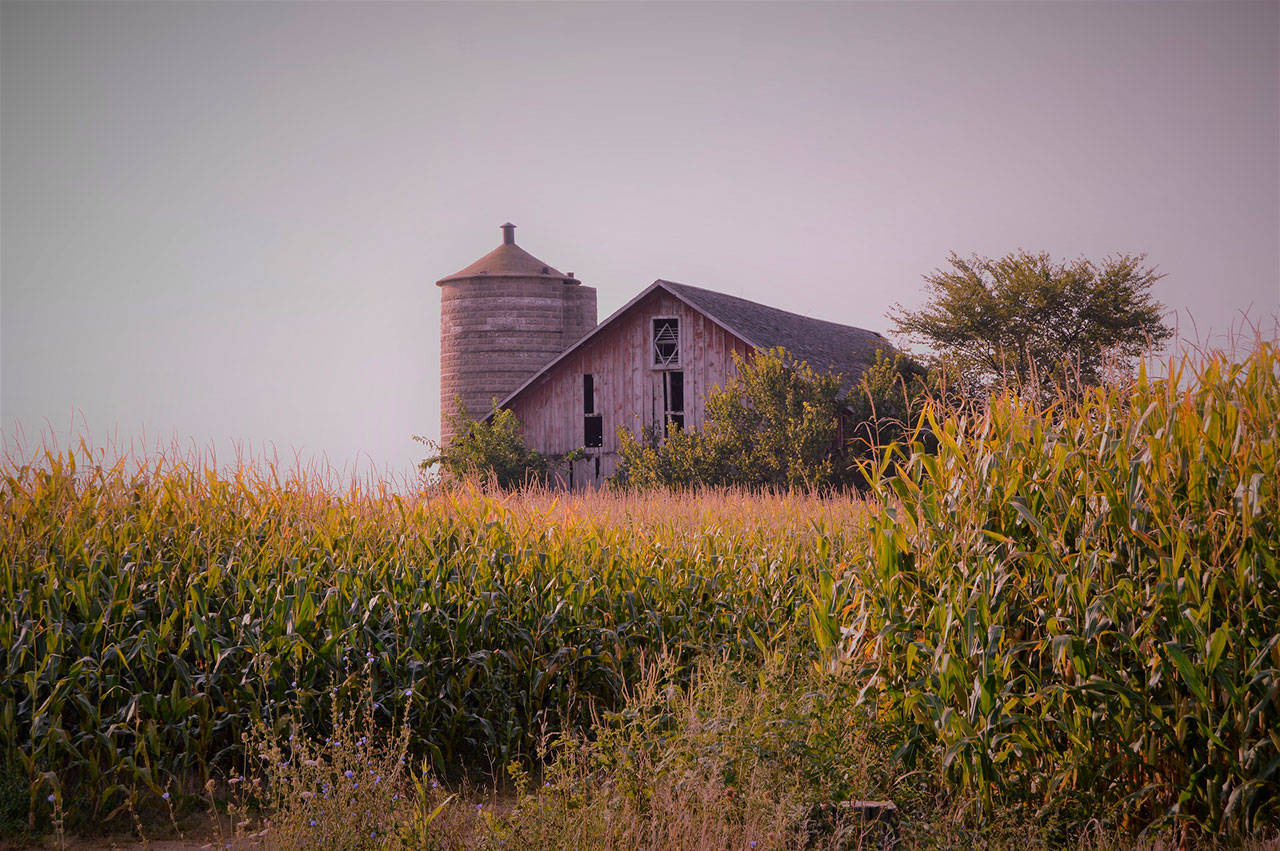As farmers on the islands near retirement, a U.S. Department of Agriculture grant is fertilizing the next crop of laborers.
The grant is funding five organizations to help farmers in San Juan and Island Counties.
“What this project is trying to do, is figure out how we can support existing and new farms so they can be economically viable in our current economy,” said Brook Brouwer, the director of the San Juan County Washington State University Extension.
According to the last USDA Census of Agriculture, the average U.S. farmer was about 60 years old in 2012. When those farmers retire, new laborers need to take over their land. According to Peggy Bill, with the San Juan Islands Agricultural Guild, today, it is rare to pass farms through generations of families.
“We need to find new farmers to step up and take over the business,” she said.
That’s why Bill is serving as a sort of farmland matchmaker, where she connects interested farmers to San Juan County land that meet their farming interests and price range. New laborers, as well as off-island farmers looking to relocate, are paired with retirees to lease or buy their existing farms.
“Like any real estate deal, it’s about finding the right match,” said Bill.
For information about the program, contact farmer@sjiagguild.com. Workshops focusing on transferring farmland, as well as federal funding for new farmers, will also be featured at the San Juan Islands Agricultural Summit on March 16 and 17 on Lopez Island. The San Juan Islands Agricultural Guild sponsors the event, annually and participants can register for the event at sjiagguild.com.
Along with the transfer of land, new farmers can acquire industry knowledge through a San Juan County Washington State University Extension mentor program, which is also funded by the USDA grant.
According to Brouwer, experienced farmers will receive a stipend to exchange information with new laborers four times a year, either in person or over email or the phone. The program, and the one through the agriculture guild, define a new farmer as someone with a maximum of 10 years of experience. So far, six local pairs have been matched in the mentorship. To inquire about the program, contact angie.freeman@wsu.edu.
Changes in the county’s farming over the years are evident in the landscape. The islands have lost roughly 30,000 acres of farmland from 1959 to 2012, according to San Juan County’s recent agriculture analysis.
While in 2012, there were about 65 more farms in the county than in 1959, the average size of a local farm had decreased 162 acres. Brouwer said the reasons for the decline include the relocation of major crop productions to other regions, loss of local processing abilities, like canneries, and increased cost of local land.
Plus, said Bill, like other island industries, it costs more to transport farming necessities, like equipment, feed and seed, from the mainland. Brouwer noted that today, many local farmers are working smaller fields to grow high-value crops and raising specialty livestock for local buyers at restaurants and farmers’ markets.
“These types of farms have a higher return per acre so [they] can be economically viable on a smaller scale,” he said.
However, even with the growers’ focus on local sales, buyers often chose food transported from the mainland.
“Most people are dependent on food coming in from the outside, but our economy benefits from increased farming and local products,” said Bill.
She said these local products include commodities created with locally grown food, like jams made of the islands’ fruit. These businesses, piggybacking on the products of local farms, helps the islands’ economy.
“The issue of supporting the success of new farmers in the region, and nationwide, is the most pressing issue in food production and farming,” said Bill.
That is the goal of the USDA grant.
In addition to the San Juan County organizations, the grant is helping the Northwest Agriculture Business Center staff in Mount Vernon develop individualized business plans for new farmers in the San Juan Islands and Whidbey Island. The Whidbey Island Conservation District staff are supporting their local farmers with the money as well.
At the Organic Farm School on Whidbey Island, the grant will fund public workshops, with a focused outreach to farmers on the San Juan Islands and Whidbey Island. The school will also sponsor an eight-month training for anyone in the United States starting on March 19 and those interested can apply at organicfarmschool.org/apply.
To Judy Feldman, executive director of the Organic Farm School, the grant provides resources to communities divided by local waters.
“The grant,” she said, “is helping organizations separated by the realities of island life better collaborate.”




